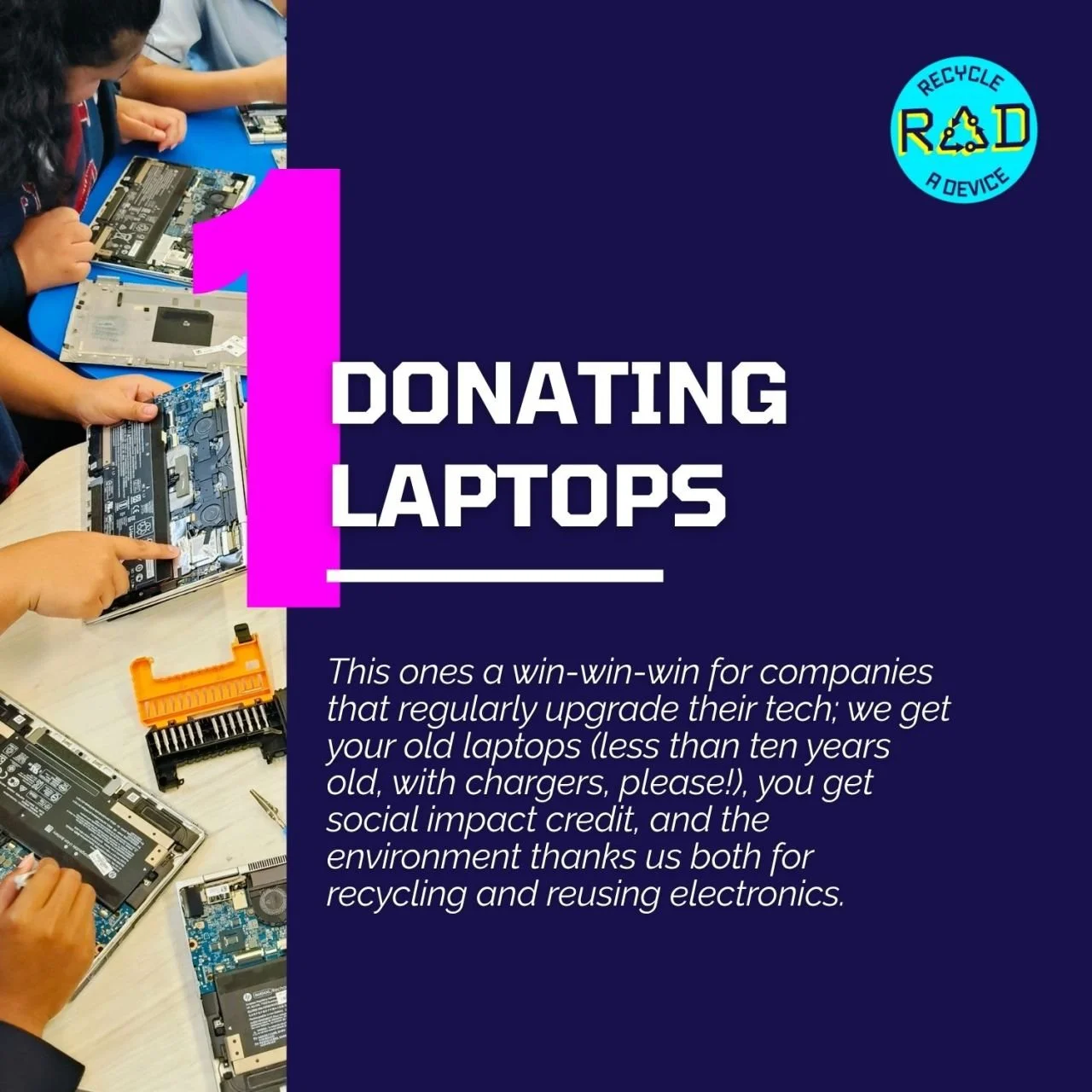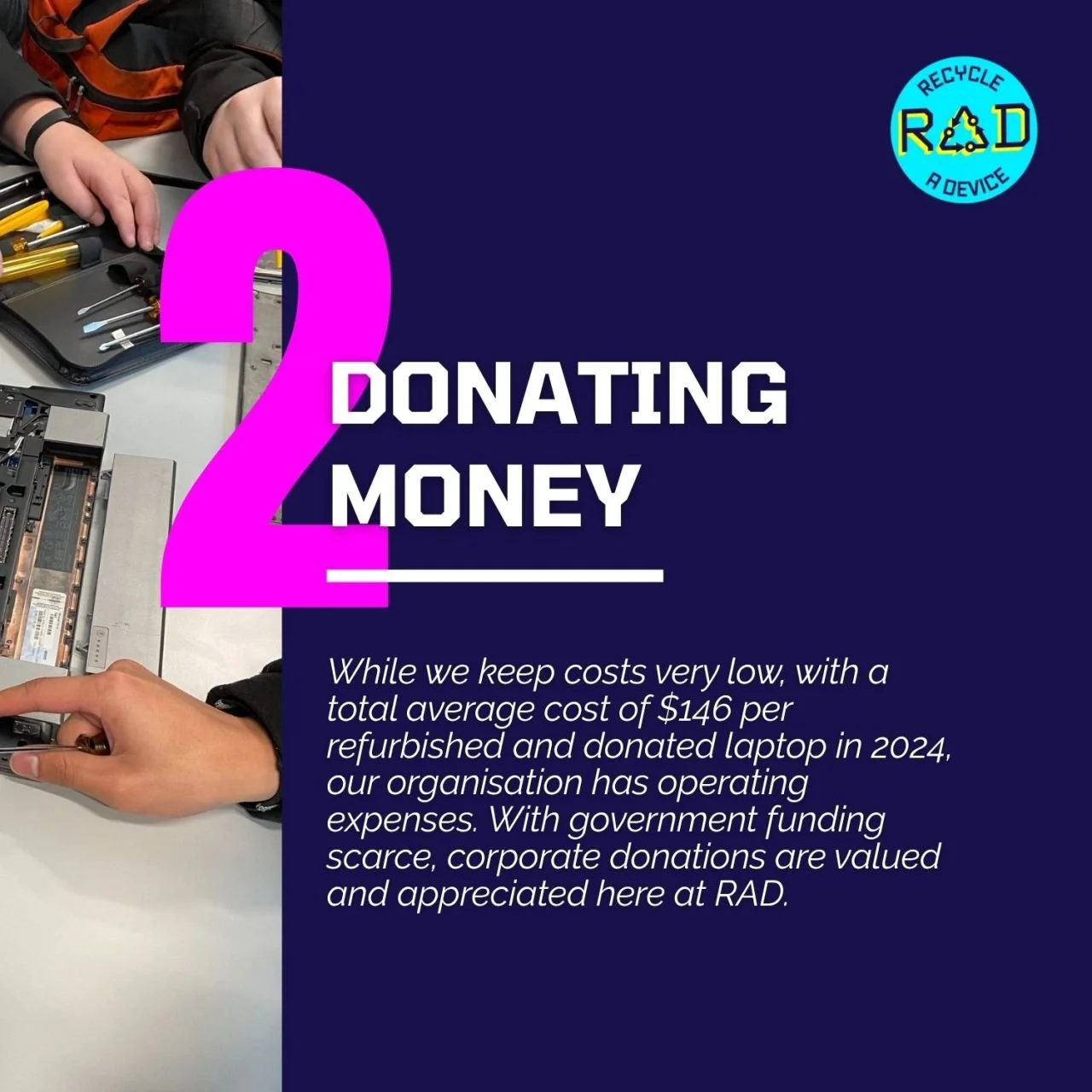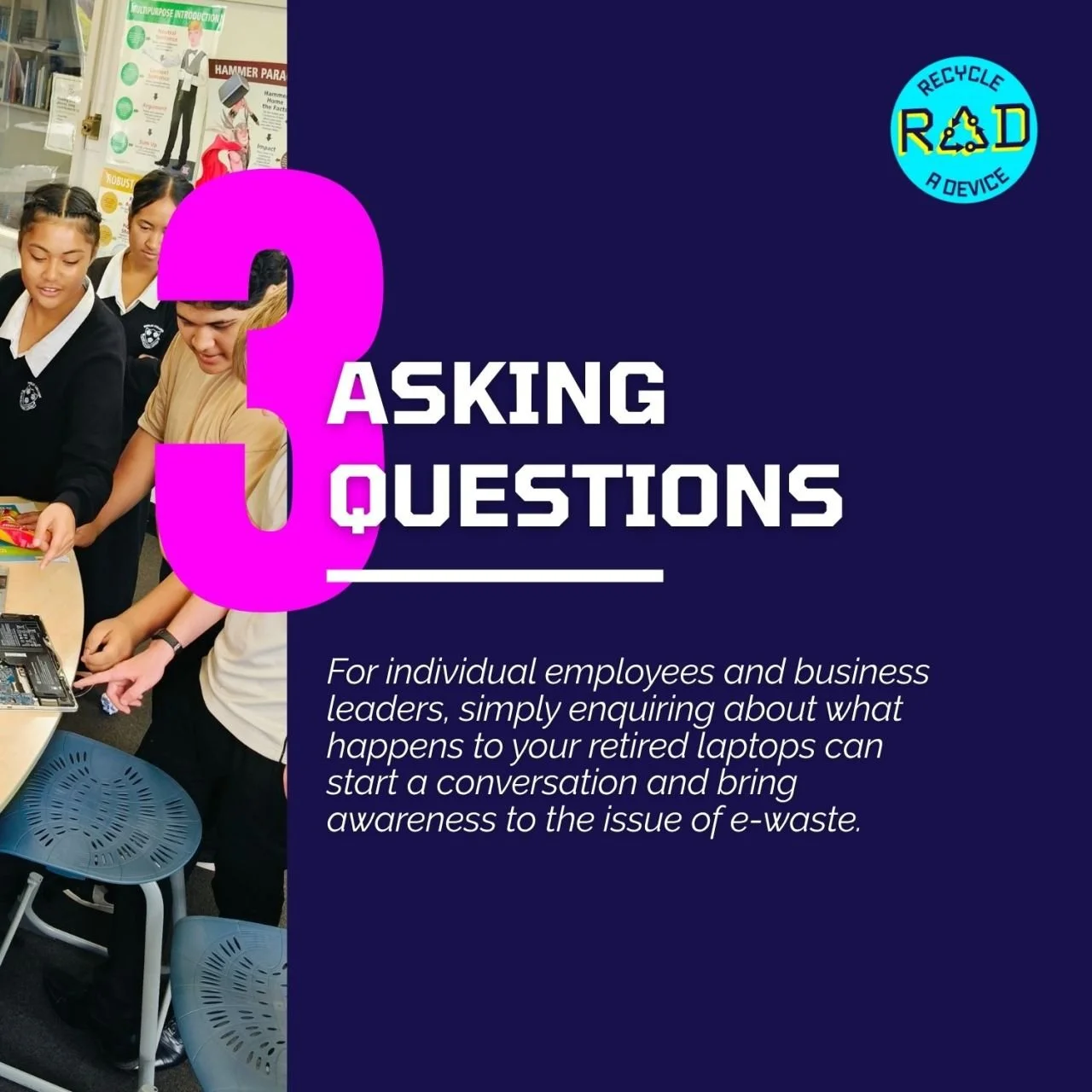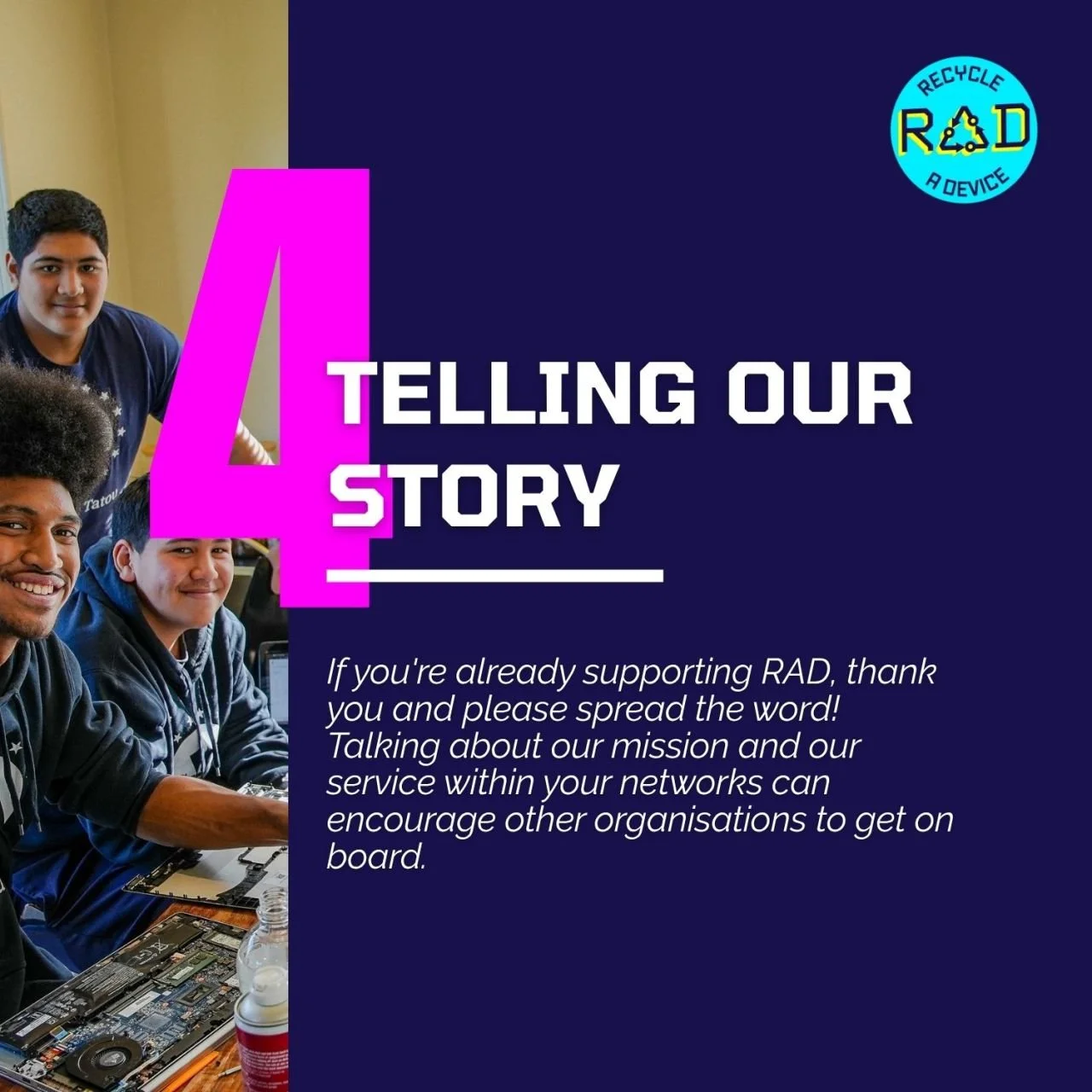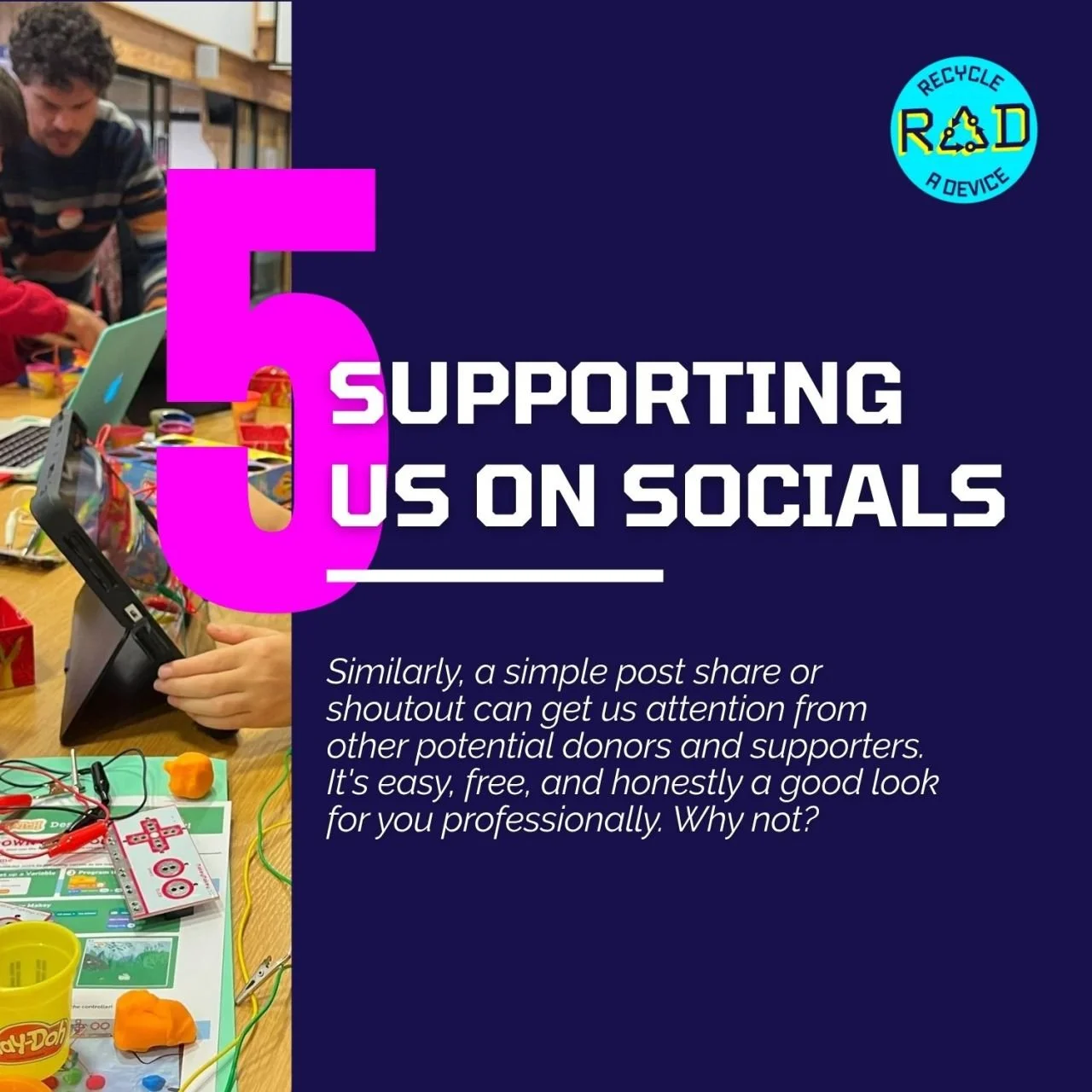The Next 5 Years of RAD
As Recycle A Device (RAD) celebrated its 5 year milestone, we’re proud of the journey so far - and even more excited about where we’re headed next. What started with a single RAD refurbished laptop gifted at Aotea College has grown into a nationwide movement that puts devices, skills and opportunity into the hands of young people across Aotearoa.
But the journey is far from over. The next chapter is about turning access into equity, skills into futures, and technology into opportunity for all.
🔍 Why the Next 5 Years Matter
In New Zealand, the digital picture is complex. While many of us assume connectivity and devices are a given, for thousands of young people and whānau the reality is different. For example:
COVID-19 revealed the digital divide and its stark impacts, limited access and skills have on educational access, with the Ministry of Education estimating 100,000 homes with students were without access to a device suitable for learning.
From that initial bringing to light of the major issues a five point plan for digital inclusion: COVID-19 and beyond was developed by leaders across the digital inclusion landscape, calling for key actions to be taken to remove digital inequities beyond the pandemic. However, many of these areas remain core issues.
Research from the Digital Equity Coalition Aotearoa (DECA) estimates thousands of families still face connectivity and device barriers - with affordability a major issue.
A 2019 study found Māori, Pasifika, people in social housing, disabled individuals and older adults are significantly less likely to have internet access. Demonstrating the need for support in already marginalised communities is even more crucial.
In the age of AI, automation and rapid digitisation, the risk is that the divide grows wider. One analysis noted that the “biggest risk is that those already missing out will fall even further behind.”
This means the next five years matter more than ever. Because if the tools of the digital world are expanding - the platforms, AI-powered services, digital learning, automation - then the opposite risk is that the gap widens for those without devices, skills or access. RAD’s mission is sharper now: not just to connect, but to equip, uplift and equalise.
📌 Our Focus: Three Pillars
In this next chapter of RAD, our strategy centres around three interlocking pillars:
1. Access – Every Learner Has a Device
We believe no rangatahi should be locked out of opportunity because they don’t own a device. Over the past five years, RAD has gifted more than 8,000, but our ambition is far greater. We plan to be able to scale with the goal that every student who needs one gets one. This means building laptop donation partnerships, even more efficient refurbisher networks, logistics, and processes that can deliver devices at volume and with quality. With much of the capability built into our programme design, we need partnerships to get on board and back us with their laptops and commitment to more sustainable practices.
2. Skills – Giving Rangatahi Real-World Tech Experience
Access is only the first step. The next step is empowerment. RAD clubs in schools and communities provide hands-on training in refurbishment, repair and digital literacy. This builds confidence, leadership, problem-solving and STEM pathways, not just devices in boxes. These rich learning opportunities are one of the key reasons why RAD is so magical. The more we equip young people with tech skills, the more they can lead, innovate and shape a connected Aotearoa.
3. Closing the Divide – System & Sustainable Change
Radical change happens when we shift systems - not just respond to symptoms. That means partnering with corporates, schools, communities, and government to embed device reuse, lifecycle management, digital inclusion and sustainability into everyday business practices. Our vision is bold: for RAD to one day no longer be needed, because digital opportunity is universal. Until that future arrives, we’ll keep working.
🎥 Hear from Our Programme Manager and Cheerleaders
Kelsey Hallahan (RAD Programme Manager)
Hear what’s happening for RAD and what’s next. The need in communities and why we need partners involved now.
Vanessa Sorenson (Managing Director, Microsoft NZ)
Find out why Vanessa supports the RAD kaupapa and why she’s encouraging other organisations to get behind RAD to create meaningful impact.
Our Hopes for RAD – Hear from our partners, leaders and founders about what their hopes are for RAD’s future goals and how we all can play a part.
🧡 Five Ways You Can Support RAD
Donate laptops:
Unused or preloved devices in your organisation or home can become tools for learners.
In short, we take laptops less than 10 years old with a charger and no visible damage.
Find out more about what RAD accepts and how to donate here.
Donate money:
Financial support helps maintain and scale refurbishment operations, train and onboard new rangatahi, develop our logistics processes and reach across Aotearoa.
We’d love to support more remote regions however, financially, that ambition requires support.
Ask questions about what happens to your laptops at work:
What happens currently with your fleet of laptops after their lifecycle in your organisation? Can your preloved end-of-life devices come to RAD? How is your organisation enabling a sustainable second life for their technology?
Tell our story:
Share RAD’s story of our first 5 years, our vision and impact in your networks, raise awareness and invite others to join. The more rowing the waka, the lighter the work is!
Support us on socials:
Follow, like, share and engage - every action helps amplify the kaupapa and build momentum, getting more people and support for RAD.
Being a RAD champion is a great thing for you and us!
🚀 Join the Next Chapter
When you give a laptop, you give access.
When you partner with RAD, you give possibility.
When you share RAD’s story, you give hope.
Together, we can make sure the next five years are not just about more laptops, but about real change: new skills, new pathways, new equity and a future where digital inclusion is the norm, not the exception.

